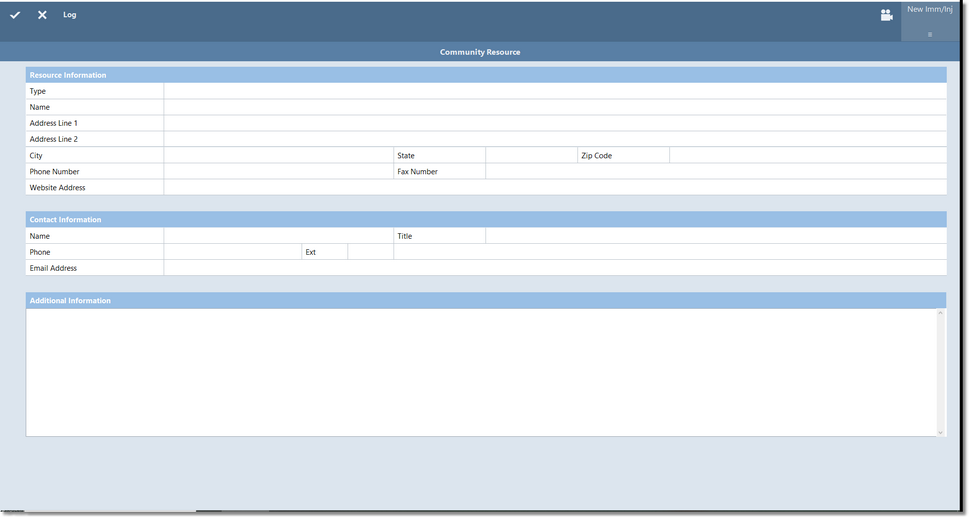May 18, 2023
Barriers and Burnout in Behavioral Health
According to Mental Health America, in 2019-2020, more than 50 million U.S. adults were experiencing mental illness, and more than 12 million reported having serious thoughts of suicide. However, studies show that more than half of adults with mental illness do not receive treatment, and nearly 60 percent of youth with major depression do not receive care.
Of course, those that do seek and receive treatment face additional challenges, such as high costs and insurance barriers and limited access and availability. In the U.S., there are an estimated 350 individuals for every one mental health provider. This shortage of mental health providers can lead to long wait times for appointments and specialized services. It also means mental health providers are experiencing high workload and burnout.
A study published in the Journal of Clinical Psychology in 2020 examined burnout rates among mental health professionals. It found that approximately 46 percent of psychologists experienced high levels of burnout. In 2018, the journal found that 6.7 percent of psychiatrists reported experiencing suicidal ideation in the past year. Burnout and other work-related factors were associated with an increase risk of suicidal ideation among psychiatrists.
psychologists experiencing high levels of burnout
Source: Journal of Clinical Psychology, 2020
Behavioral health specialists, including psychologists and psychiatrists, have been found to have comparable or even higher rates of burnout compares to other healthcare professionals. Heavy workloads, long hours, high caseloads, emotional demands, administrative burdens and limited resources all contribute to burnout among behavioral health specialists, and these factors can lead to emotional exhaustion, depersonalization and a decreased sense of personal accomplishment. This can also negatively impact the quality of care provided to patients, as it can lead to reduced empathy, increased errors and decreased patient satisfaction.
When you consider the additional challenges from the COVID-19 pandemic, these issues have only gotten worse. Multiple studies have reported increased rates of mental health symptoms during the pandemic, such as anxiety, depression, stress and loneliness. The pandemic also limited access to care as closures of clinics and in-person services created more barriers for both patients and providers.
How an EHR system can help
When choosing an electronic health record (EHR) system for behavioral health providers, there are several features that can enhance the efficiency, effectiveness and quality of care. Here are some features to look for:
Behavioral Health-Specific Templates and Documentation
An EHR system should offer behavioral health-specific templates and documentation tools that are tailored to the unique needs of behavioral health providers. This includes standardized assessments, progress note templates, treatment plans, and other relevant documentation specific to various behavioral health conditions.
Integration of Diagnostic Criteria
The EHR system should integrate recognized diagnostic criteria such as DSM-5 (Diagnostic and Statistical Manual of Mental Disorders) or ICD-10 (International Classification of Diseases, 10th Edition). This ensures accurate and standardized coding and facilitates proper documentation of behavioral health diagnoses.
Treatment Planning and Goal Setting
Look for an EHR system that enables easy creation and management of individualized treatment plans. It should allow providers to set goals, track progress, and update treatment plans as needed. The system should also support care coordination among multiple providers involved in a patient’s treatment.
Medication Management
A robust medication management module is crucial for behavioral health providers. The EHR system should support electronic prescribing, medication reconciliation, medication history tracking, and provide alerts for potential drug interactions, allergies, or medication adherence issues.
Care Team Collaboration and Communication
Effective communication and collaboration among care team members are vital in behavioral health settings. Look for features like secure messaging, shared calendars, task assignment capabilities, and the ability to document and track communication within the EHR system.
Outcome Measurement and Reporting
The EHR system should have tools for outcome measurement and reporting, allowing providers to track patient progress, collect data on treatment outcomes, and generate reports for quality improvement initiatives, research, and compliance purposes.
Data Security and HIPAA Compliance
Ensure that the EHR system meets industry standards for data security and compliance with HIPAA regulations. This includes features like access controls, data encryption, audit logs, and regular data backups to protect patient information.
Customizability and Workflow Flexibility
The EHR system should be customizable to meet the specific workflow needs of behavioral health providers. It should allow for flexible data entry, customizable templates, and the ability to adapt to changing regulatory requirements or practice preferences.
Training and Support
Consider the availability of training and ongoing technical support from the EHR vendor. Adequate training and support are essential to ensure a smooth implementation and efficient use of the EHR system by behavioral health providers.
MEDENT Features
MEDENT is a comprehensive EHR system used in healthcare facilities, including behavioral health settings. It can assist in managing and organizing behavioral health records in the following ways:
MEDENT provides a centralized digital platform to store and manage patient records. It allows healthcare providers in behavioral health settings to have easy access to patient information, including medical history, diagnoses, treatment plans, medications, and progress notes.
The EHR system enables healthcare professionals to create and maintain detailed and structured documentation for each patient’s behavioral health records. This includes progress notes, assessments, treatment plans, and other relevant information. It facilitates accurate and organized documentation, ensuring continuity of care and effective communication among the care team.
MEDENT can assist in creating and managing treatment plans for patients with behavioral health conditions. It allows providers to develop individualized care plans, set goals, track progress, and make updates as needed. The system can also facilitate care coordination among multiple providers involved in a patient’s treatment, promoting collaboration and continuity of care.
MEDENT helps healthcare providers in behavioral health settings manage medications effectively. It allows for electronic prescribing, medication reconciliation, and tracking of medication history. Providers can review a patient’s medication list, record prescribing details, monitor medication adherence, and receive alerts for potential drug interactions or allergies.
MEDENT can generate reports and analytics related to behavioral health, providing valuable insights into patient outcomes, population health trends, and quality improvement initiatives. This data can be used for research, decision-making, and optimizing treatment approaches.
MEDENT is designed to meet the privacy and security requirements of protected health information (PHI) under HIPAA regulations. It incorporates features such as access controls, data encryption, audit logs, and backup systems to ensure the confidentiality and integrity of behavioral health records.
Community Resources
A place to document information about entities such as food pantries, counseling services and homeless shelters, which can be useful for behavioral health patients. This can be added to a patient’s Care Team in MEDENT.
Includes Resource Information section with fields for type, name, address, phone and fax number, and website address.
Includes Contact Information section that can be used to document information for a specific contact at the community resource.
Includes Additional Information section that can be used to document any additional information about the community resources, such as program details, eligibility and hours.



Comments are closed